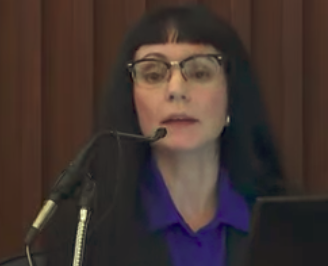By DAMIEN FISHER, InDepthNH.org
DOVER – “You have short time left on this earth,” Dean Smoronk texted to his ex-girlfriend and business partner Christine Sullivan in the weeks leading up to her brutal 2017 murder and the murder of her friend Jenna Pellegrini.
That isn’t the only threat Smoronk sent Sullivan before she was killed. The couple were in the midst of breaking up romantically and sorting out how their illegal business partnership would end as Smoronk sent text after angry text with threats.
“I am going to cut you right to the bone because you’re a greedy, self-centered, piece of s***,” Smoronk texted on Jan. 17, 2017.
Sullivan was beaten and stabbed multiple times. Pellegrini was stabbed more than 40 times.
But Smoronk, who ran a drug trafficking operation with Sullivan, was never charged in the Jan. 27, 2017 slayings at his Farmington home. Instead, Sullivan’s friend Timothy Verrill finds himself on trial a second time, with jurors scheduled to start deliberations as soon as Wednesday.
Verrill’s defense team rested its case Tuesday after calling three witnesses, including Erin Saxon, the investigator with the Public Defender’s Office who obtained the texts from the phone Smoronk handed to New Hampshire State Police investigators after the murders. The texts display the anger and hatred Smoronk harbored against Sullivan.
“You’re going to see 2017 be the worst Goddamn single year of your life Christine,” Smoronk wrote in a late December, 2016 text. “I wish you were dead already … I f***ing swear Christine you just turned this lethal, motherf***er. You might as well call the cops right now.”
On top of their relationship and business coming apart, Smoronk and Sullivan had a 2016 South Carolina drug trafficking arrest hanging over them, and Smoronk did not trust her.
A text Smoronk sent to Verrill indicates he suspected she was going to talk to police.
“She is trying to set herself to walk away an innocent,” Smoronk texted to Verrill.
Verrill dealt drugs for Sullivan and Smoronk, and was closer to Sullivan, according to the testimony presented at trial. He even lived at the house for a time in 2016.
Verrill denies he killed the women, but Josh Colwell testified Verrill was strung out on drugs and paranoid the day of the killing, and suspected Pellegrini was a police informant.
Colwell, however, was forming a new drug dealing partnership with Smoronk at the time, and the two were plotting a new drug business without Sullivan and Verrill. Stephen Clough, another man in Smoronk and Colwell’s circle, was initially a suspect, and reportedly had “guilty knowledge” of the murders, which forced police to cancel his polygraph exam. Clough also had scratches on his arms and legs soon after the murders, during which police think Sullivan fought back. Clough, however, was childhood friends with Brian Strong, the lead New Hampshire State Police investigator on the case. Clough was also an informant for the DEA.
DNA expert Jennifer Sears, who worked for the laboratory that performed tests on evidence for New Hampshire State Police, testified Verrill’s DNA is excluded from the outside of the rings Sullivan wore when she was killed. Sears testified she could not get a Verrill match from the DNA under Sullivan and Pellegrini’s fingernails. While there was other male DNA possibly present, Sears testified New Hampshire State Police only sent a DNA reference sample for Verrill to test against the evidence. At the time the evidence was sent for testing, police had a sample from Clough.
This is the second trial for Verrill, after the first one in 2019 ended in mistrial because police did not hand over all of the evidence in the case. Much of the withheld data included exculpatory information, including a witness who told police Smoronk tried to hire him to kill Sullivan.
New Hampshire State Police blamed poor record management by investigators, including Strong, for the errors that led to the withheld evidence. Strong was taken off investigations following that review because he had been promoted.






